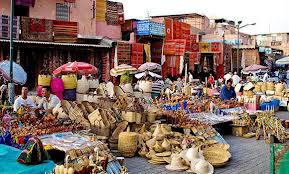
Moroccan director Faouzi Bensaïdi’s third feature is the story of three dissatisfied young friends and petty thieves, set in the port of Tetouan. Malik dreams of a better future with Dounia, a local prostitute. Soufiane finds hope in radical Islam, while Allal wants more than the day-to-day struggle that consumes him.
Death for Sale presents a visually hypnotic landscape of abandoned buildings populated by a fragile generation waiting to explode. The film won the CICAE Art Cinema Award at Berlinale 2012 and heralds a new dawn in Moroccan cinema.
Bensaïdi, best known for his breakthrough 2003 drama A Thousand Months, says while Death for Sale was made before the Arab Spring, the film “deals with the reality of a generation left to bang its head against a wall.” The director says that Morocco has partly insulated itself from the Arab Spring through a change in attitude at government level.
This is reflected in the arts. The state made a firm choice to invest in culture over the past decade, says Bensaïdi. “What we have now is a young and free cinema which isn’t afraid to say and film things as they are,” he adds.
Also read:Hate Radio: Race matters in multimediaRevolution hits Zimbabwe’s theatresA revolution in Arab CinemaAngola: In the eye of the beholder
Furore over “The Spear” rages in SA
The results are there for everyone to see. “Moroccan cinema has experienced an important evolution in the past 10 years,” says Lamia Cheddi, a spokeswoman for the state-financed Centre Cinématographique Marocain (CCM).
The CCM oversees 50 film festivals in Morocco and has opened four film academies in the past decade, such as ESAV in Mar- rakech. There are more than 110 active Moroccan filmmakers, and in 2011 the country produced 23 features and 80 shorts.
Through CCM the state invested roughly $7.1m in production in 2011. An average feature can cost $650,000, of which CCM will often finance 70%, according to Cheddi. The CCM is already a hub for many West African filmmakers.
In 2011 it co-produced Burkinabe director S. Pierre Yameogo’s La Patrie and four other features from Côte d’Ivoire and Burkina Faso.
Morocco is also becoming a popular location: directors such as Atiq Rahimi from Afghanistan and Germany’s Oliver Schmitz shot films there in 2011●
Last Updated on Wednesday, 18 July 2012 09:13
Show More Articles From This Author
.




